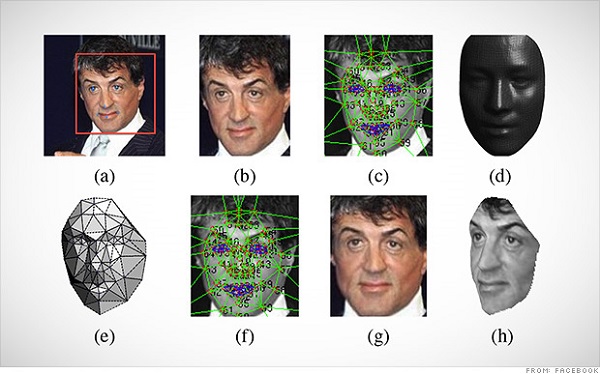Until not so long ago, people used to fear that Google Glass might get some face recognition features that could ruin our privacy, but it looks like Facebook went ahead of the search giant and implemented a spectacularly accurate version of that.
Humans are still the best at recognizing other people, but Facebook’s face recognition technology has great chances of surpassing them. According to a recent report, the social network’s latest experimental feature can distinguish you from another person just by analyzing your face.

The new AI system, which is simply known as DeepFace, is scary accurate. In some experiments conducted by Facebook scientists, the DeepFace system was asked to confirm or infirm if two pictures are of the same person. The results? Well, Facebook’s face recognition technology is right 97.25% of the times, while humans clock in at 97.53%. How long do you think it will take this system to surpass us? That accuracy is already very high, and it’s so close behind us that beating humans (at this test, I mean, not in a “world domination” context) wouldn’t take much.
DeepFace represents a major step forward from Facebook’s current face recognition technology that is used for making suggestions while tagging photos of friends. The Google+ social network features a similar technology, but DeepFace is said to be a lot better. Most face recognition software can only make an association between a photo and a person if the image is taken from the front of the subject, thus revealing the most noticeable characteristics. DeepFace, on the other hand, can easily create a 3D model of the faces in photos. After doing so, it analyzes them using an AI technology called “deep learning.”
Facebook spokeswoman Lydia Chan pointed out that for the time being, DeepFace is just “theoretical research,” and that this feature might never make it on a global scale. Still, Facebook isn’t known for inventing new technologies just for the sake of playing with them.
In an earlier paper, Facebook researchers claimed that “The social and cultural implications of face recognition technologies are far reaching, yet the current performance gap in this domain between machines and the human visual system serves as a buffer from having to deal with these implications.” According to them, DeepFace “has closed the majority of the remaining gap.”
Be social! Follow Walyou on Facebook and Twitter, and read more related stories about the stealth clothes that prevent Google Glass from recognizing faces and this funny Lenovo IdeaPad face recognition ad.










